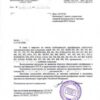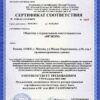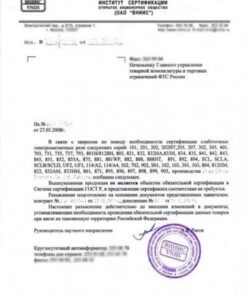Sale!
Certificates and declarations of conformity GOST and CU
Original price was: ₹400,000.00.₹200,000.00Current price is: ₹200,000.00.
Certificates and declarations of conformity are official documents that confirm that a product, service, or system meets specific standards or regulations. In the context of Russia and some other countries of the Eurasian Economic Union (EAEU), GOST and CU (Customs Union) certificates and declarations are particularly important.
Here’s a brief overview of GOST and CU certificates and declarations:
### GOST Certificates and Declarations
**GOST** stands for “Gosudarstvennyy Standart”, which translates to “State Standard”. GOST certificates and declarations are issued for products that comply with Russian national standards.
– **GOST Certificate**: A GOST certificate is a mandatory document for many types of products sold in Russia. It confirms that the product meets all the necessary Russian standards and safety requirements.
– **GOST Declaration**: A GOST declaration is a document in which the manufacturer or importer declares that their product complies with the relevant GOST standards. Unlike a certificate, a declaration does not require third-party testing by an accredited body but does require the manufacturer’s responsibility for the conformity of the product.
### CU (Customs Union) Certificates and Declarations
The **Customs Union** (CU) includes Russia, Belarus, Kazakhstan, Armenia, and Kyrgyzstan. The CU introduced unified technical regulations (CU TR) to ensure the safety and quality of products circulating within the union.
– **CU Certificate**: A CU certificate confirms that the product complies with the technical regulations of the Customs Union. It’s mandatory for products that fall under the CU TR.
– **CU Declaration**: Similar to the GOST declaration, a CU declaration is a document where the manufacturer or importer declares the conformity of their product with the CU technical regulations. It also requires the manufacturer’s responsibility for the product’s conformity.
### Key Differences
– **Third-party Testing**: GOST certificates typically require third-party testing by an accredited certification body, whereas GOST and CU declarations rely on the manufacturer’s or importer’s own assessment.
– **Coverage**: GOST certificates and declarations are specific to Russia, while CU certificates and declarations are valid across the entire Customs Union.
– **Validity**: Both certificates and declarations usually have an expiration date and may require renewal or recertification.
It’s essential to understand the specific requirements for your product and market when considering GOST and CU certification or declaration. Non-compliance can result in customs delays, fines, or even the prohibition of your product from entering the market. If you’re dealing with export or import to Russia or other EAEU countries, consulting with experts or certification bodies can help ensure compliance and smooth market access.












Reviews
There are no reviews yet.